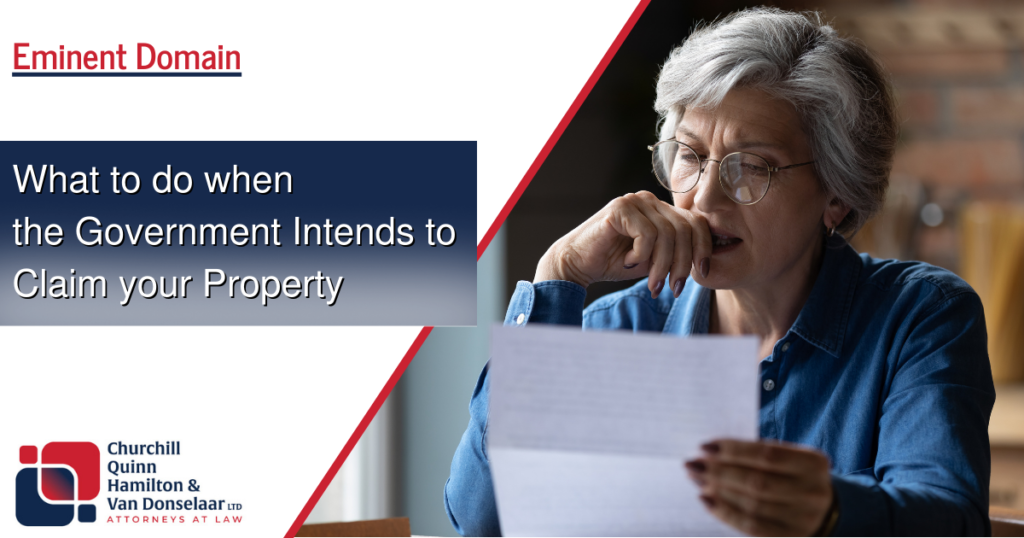4 Ways to Protect Your Property in an Eminent Domain Case

Eminent domain refers to the fundamental power of the government to take real estate owned by a private person for a public use, without the owner’s consent or agreement. As a property owner, the last thing you probably want to hear is that you are losing your property against your will. But can you actually stop it from happening? Here are some important ways to protect your rights and your property if you find yourself in this predicament.
Learn the Definition of Eminent Domain
Can the government really just take your land without your consent? Yes, they can. The law of eminent domain, which is also known as condemnation, gives the government the power to acquire all or part of a private property for a public purpose after paying appropriate compensation to the property owner. This payment is intended to cover the actual property that is taken, or damage that results to any part of the property that is not taken.
Most government entities, including cities, counties or state agencies, can exercise the power of eminent domain. Some examples of projects where it might be appropriate include the construction of roads, parks, railroads, schools, municipal buildings or power lines.
Understand the Eminent Domain Process
Typically, the eminent domain process follows a standard sequence of events. Once a government agency determines there is a need to implement eminent domain, they must send written notice to the owner of their intent. In this notice, they should include a legal description of the property or parcel they intend to acquire as well as their offer of compensation. Additionally, they should explain their reasoning in determining the offer and include the time period in which the owner must accept the offer or continue with negotiations.
If the parties are unable to reach an agreement, the government agency must file a complaint in the county in which the property is located in order to escalate the process. This process will then continue with negotiations between attorneys, with each side gathering and presenting evidence to support their assertion of fair compensation. If a trial is necessary, a judge or jury will make the final determination of just compensation based on the evidence presented to them.
Know your Rights as a Property Owner
It is important to understand that you do have rights when it comes to your own property. In this respect, the government cannot simply take over your land or home without just cause. As previously stated, an eminent domain action can only be initiated out of public necessity or public purpose. This means that the government must have an appropriate reason to claim your land. Additionally, property owners are entitled to fair compensation. This compensation should be based on the fair market value of your home and land, and could also include allowances for relocation, lost work or other factors. You do not have to accept the first offer made if you do not feel that it is fair.
Work With a Trusted Attorney
The most common question a property owner usually has is whether they even stand a chance against the government in the case of an eminent domain situation. At Churchill, Quinn, Hamilton & Van Donselaar, Ltd, we want you to understand that you are not powerless. Our team is dedicated to helping you navigate this process and achieve the best possible outcome. In occasional instances, it can be argued successfully that the government lacks an adequate public purpose for taking your property or that they are attempting to take more land than is necessary. If there is an appropriate legal claim, we can work to ensure you receive the highest compensation you deserve for your property. If you have received a notice of eminent domain, contact our office at 847-223-1500 to schedule a consultation and learn what your next steps should be.
